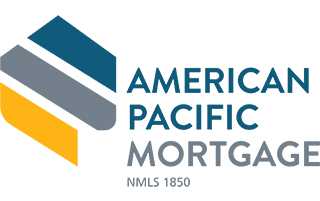Categories You Should Include in Your Household Budget if You Want Success
Budgets are personal things that will differ slightly from one person to the next. There are a number of categories, however, that pertain to the majority and should be included in your budget. In addition to the following categories, take stock of your spending and determine what other expenses you regularly spend money on. For example, you may have a pet that needs regular vet care, medicine or grooming. You will need to include that in your monthly budget.
Income
This is one category that is absolutely necessary for every budget. You need to know exactly how much you have to work with before you can figure out where to spend it. For those who are salaried workers or on a fixed income, this category is easy to do. For those who bring home a varied amount of money each pay period, it helps to first track your income over two or three months and then base your budget on the lowest amount of these. That way, you know periods with less income will still be taken care of, and you can put the extra money you receive on other months toward paying down debt or adding to savings.
Housing
This category is specifically for your rent or mortgage and related housing costs such as property taxes or home insurance. Do not place things like your utilities or repairs in this category as your utilities have their own category. Repairs fall under emergencies unless you want to include a category specifically for any necessary household repairs. This can come in handy if you know your furnace or water tank will need to be replaced within the coming year or you know you will need to replace your roof.
Transportation
This category will include everything you spend regarding normal transportation. You can include gas, oil and other regularly changed fluids, bus and taxi fare for the kids and money toward getting your driver’s license renewed or your car inspected. You can also include any regular expenses such as oil changes and alignments. If you are driving an old car that regularly needs to be repaired, you could set aside a certain amount each month for those repairs. Normally, however, major car repair expenditures are taken from the emergency fund or savings.
Children and Education
This is a category that not everyone will need. Those who do have children will include a variety of different things, depending on their personal family situation. Here is where you keep track of tuition, school uniforms, any expenses related to extra-curricular activities or lessons and allowances. You may want to keep children’s clothing purchases here if you don’t have a clothing category. This is also the place to include savings for college educations, especially if that time is quickly approaching. Child support payments can be listed here. If you pay regular childcare expenses, they go in this category. The occasional babysitter fee, however, is listed under entertainment.
Savings
People argue that savings is a category they don’t include because they simply put any “leftover” money in savings each month. That is if there is any money left. Savings is an important category because it is unlikely that you will save regularly without making it a priority. By adding a certain amount of money for savings to your budget, you guarantee that there will be money put aside. This is where you save for vacations, a new vehicle, and retirement. You can always put extra money in your savings but never put in less than you have budgeted. Consider it as paying yourself each month.
Utilities
This is a category that might show a different expenditure each month. Gas, electric, water, and sewer charges are placed here. If you work with your utility company, you can often arrange to have your payments evenly distributed over a twelve-month period. At the end of that period, the utility company will adjust the amount to make sure you have not over or underpaid. This arrangement will help you determine how much money to put aside each month. If you can’t arrange a balanced payment system, you can figure out the average monthly payment over time. This will leave you with extra money on months when the bill is lower, but leaving that extra in there, will make up for months when the bill exceeds your monthly allotment.
Health Care
The health care category includes monthly health insurance payments, but it also includes other things. You most likely need to make co-payments for the doctor and dental visits, may need vision-correction glasses and may require regular prescription medicines. All of these things go into the healthcare category.
Consumer Debt
This category is for things like credit card payments. It also includes student and personal loan payments. The only loan payments you do not include in this category are mortgage payments, which we discussed earlier as belonging in the housing category. If you happen to have any legal fines, you may want to include them here, but you could also create a separate legal category, especially if you pay a regular retainer for a lawyer. As an alternative, you could place those fees in a sub-category.
Food and Groceries
This category is fairly self-explanatory. The only thing you do not include here in the way of food and drink is dining out. You also don’t include things like restocking your liquor cabinet or providing food for a party or other special event. That is placed under entertainment.
Personal Care
Personal care can include things like toiletries, laundry soap, tooth products and anything else that is required to maintain a clean, healthy body. Here is where you may want to include vitamins and other over-the-counter medications. This is also where you include money you set aside for hair care, gym memberships, or massage appointments.
Entertainment
Concert ticket, meals out or pizza deliveries, Netflix subscriptions and money set aside for gifts or entertainment all go into this category. This is also where you record internet service unless you specifically use the internet for work. In the latter case, you will most likely have a work budget that includes internet service. This is the category where you also record things like sporting equipment and video games.
Emergency Funds
Like the savings category, this is one category that is often overlooked but shouldn’t be. Life throws things at us that can completely destroy our financial stability. By putting aside a certain portion of your monthly income for emergencies, you can help ease the burden of having to replace a broken window, calling a plumber if your basement floods, or replacing your air conditioning system. Knowing you have the emergency funds for life’s unexpected moments can help get you through a tough period.
They say that most people are only two paychecks away from being homeless. Having an emergency fund in place will help make it less likely that you will be one of those individuals. Emergencies don’t always mean something breaks and needs to be replaced. This category could provide you with lost wages if you are out of work or can provide additional childcare if you need it because your regular arrangements somehow fall through. Like your savings, this category does not have one sole purpose but rather is used as needed.
Tracking Categorical Spending Gives Greater Control
By creating categories you are giving yourself a better overview of where your money is going. It is also a good way to help you determine where cuts in spending can be made without causing problems or to help you save more over time. It also has several other benefits.
- You have a written record that allows you to track your spending not only from one month to the next, but also from one year to the next. You can easily see when there is a major change in one particular category. This allows you to prevent some things that could result in a problem. For example, when a furnace is becoming less effective and getting close to needing to be replaced, heating costs may take a sharp rise. Seeing this, you can have your furnace checked and possibly repaired before a major replacement is necessary.
- Having the written record will also allow you to see what works and what doesn’t in regards to future planning. You may find that you continuously over-prepare for emergencies but fall short on healthcare expenses. Seeing this pattern, you can better adjust your future budget to help correct this discrepancy. You can also plan better if someone requires more money for school tuition. You’ll have a complete picture that may show another category always seems to have an excess and make changes.
- Some of your categories will stay the same for months, and even years. Others will fluctuate drastically throughout the year. By finding an acceptable amount to put aside each month, you create a safety net of sorts for the times when a certain expense exceeds the normal amount. It also helps in cases where you may find yourself laid off from work because of an illness or a slow period. Knowing exactly what you need in order to get through the lean months will make that uncertain time easier to get through without creating a financial problem.
The views, articles, postings, and other information listed on this website are personal and do not necessarily represent the opinion or the position of American Pacific Mortgage Corporation or US Lending Company.
* For loan examples and more information visit our disclosure page at https://www.uslendingcompany.com/disclosures/





